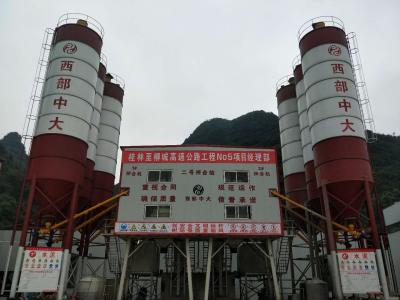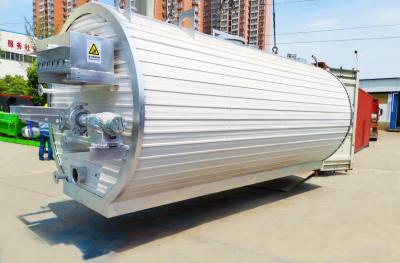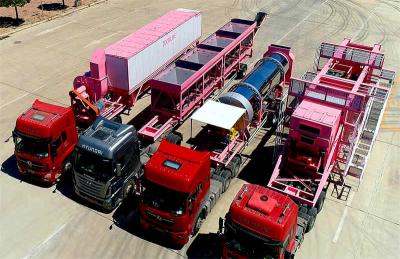How to choose the raw materials for my concrete mixing plant?
How to choose the raw materials for my concrete mixing plant?
The raw materials required for a concrete mixing plant are: powders, aggregates, water and water reducing agents. Aggregates include coarse aggregates such as river pebbles and gravel, as well as fine aggregates such as sand and gravel. Aggregate is often used in cement as a framework or as a loose granular material to be added to the building. When using a concrete mixing plant system for the production of commercial concrete, the selection of the raw materials and the method of preparation are crucial.
When the stones are of the same strength, gravel has a larger surface area than river pebbles, and it has a stronger bond to the mortar mix than river pebbles. As a result, gravel is generally used as the coarse aggregate required for commercial concrete in the construction process. However, the specific preparation needs to be regulated so that the mix has higher stability and durability and reduces the net pulp heating and dry shrinkage of the cement mortar and other kinds of effects.
The choice of fine aggregates should give preference to coarse and medium river sand. Fine sand is finer, the particle content is more, in the case of the same water-cement ratio, fine sand mixing commercial concrete used to mix a lot more cement than the use of coarse sand, compressive strength will also be reduced, and frost and abrasion resistance will also be poor.
The selection of aggregates requires first of all a certain strength and density of material; subsequently they must be clean enough to be sieved out of harmful substances and residues and to meet the standards of technical use. In addition is the aggregate of the granular material grade should be appropriate, the appearance of the material will also affect the compatibility of the mix and the strength of the concrete, the surface of the rough aggregate mix and commercial concrete and ease of weak, relatively high strength; and the surface of the smooth aggregate adhesion is weak, and the mix of commercial concrete and ease of good, but slightly lower strength.



